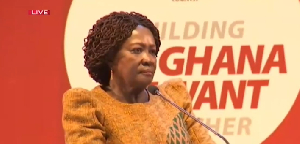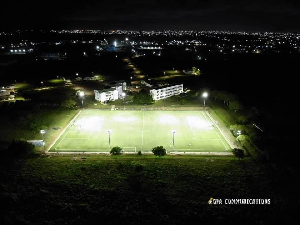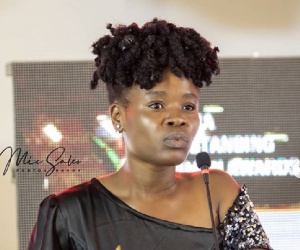Opinions of Thursday, 13 December 2018
Columnist: Chris Koney
A new deal and a new award; Ameri stands committed to delivering more power to Ghana
Few need TO be reminded of the difficulties Ghana faced in 2015.
When we entered the country that year, it was in crisis. Chronic blackouts and irregular supply crippled industry. Food products went off. Businesses struggled to stay competitive. Everyday people were suffering.
It was clear something needed to be done. We at Ameri were willing to take a leadership role and do what we could to restore reliability and resilience to the energy market. We had long prided ourselves not only on the fruitful public-private partnerships that we had forged around the world, but on our ability to supply power to countries—and most importantly, people—who needed it most. Leadership is not about glorious acts: it’s about keeping your team focused and motivated to achieve a goal, even when the stakes are high.
And this was the lesson of the power plant project. We were delighted to strike a five-year BOOT (build, own, operate, transfer) deal with the government so we could have the Takoradi plant up and running quickly. Within four months—record time—the plant had been built. It remains the largest emergency energy project in West Africa, and by the time of the Parliamentary Committee hearing last year, it was supplying close to 20 per cent of all Ghana’s electricity. The power outages that had blighted Ghana for years were rapidly decreasing.
Since then, we have engaged in a constructive dialogue with the government. We were always open about our work, and ready to address any misconceptions or clarify important points. We were subjected to allegations, but we were confident in the deal that we struck: we offered the lowest levelised tariff of any thermal plant in Ghana, and delivered even more than we had agreed to deliver. As PricewaterhouseCoopers (PwC) proved, our deal with the government represented the best value for money compared to any other power project in the country.
Churchill once wrote that ‘the truth is incontrovertible’, and this sustained us throughout a difficult period. Despite the controversies in the media, and challenges from elsewhere, we continued our operations. We kept supplying electricity to the national grid, and we continued to contribute 20 per cent of Ghana’s electricity.
Now, having found a solution, we are grateful for the government’s renewed faith in us. What matters most now, as it did at the inception of the Takoradi project, is that the Ghanaian people have access to reliable and inexpensive energy. Then they can get on with their lives and thrive.
It is no secret that there are dynamic economies in Africa, including Ghana, which have the potential for rapid economic growth. The progress made in the last decade alone is remarkable. But for it to continue, and for Ghana to realise its potential, there needs to be energy and infrastructure so that power can be delivered consistently and affordably.
At present, despite progress, Africa is the continent with the lowest access to energy of anywhere in the world, with sub-Saharan Africa particularly at risk to energy poverty. As of April this year, there were 600 million people living without access to electricity in Africa. It was partly this that prompted the African Development Bank to pledge $12 billion to energy development over the next five years.
The importance of energy cannot be overstated. It is not only an important standalone sector, but also a foundational part of any economy, allowing for the expansion of industry, the development of agriculture, increased trade and improved transportation. All growing economies want to do what they can to create jobs and promote foreign investment. There is a direct correlation between energy availability and economic growth. The negative impact of unreliable energy, on the other hand—as anyone who experienced the 2015 power crisis knows—can be significant.
We firmly believe that in Ghana we have played our role. We remain deeply committed to serving the Ghanaian people. We are proud to have been recognised as Ghana’s Emerging Energy Company of the Year at the Ghana Energy Awards, and we’re glad to have been presented with a new deal by the Energy Minister.
We have taken positive steps together. Now, we will continue to work with the government, legislators, policymakers and the private sector to make sure that a crisis like that which took place three years ago cannot happen again, and that, in Ghana, people can look forward to a very bright future.













